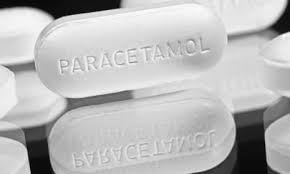The Director General of the National Agency for Food and Drug and Administration and Control (NAFDAC), Prof. Mojisola Adeyeye, has instructed a comprehensive market survey to sample and examine various paracetamol brands in Nigeria.
Recent investigations have uncovered a concerning trend – almost all paracetamol tablets sold in Nigeria do not meet the standards set by the British Pharmacopoeia and the World Health Organization (WHO).
A study conducted in 2023, titled “Comparative Analysis of Five Different Brands of Paracetamol Sold in Nigeria with British Pharmacopoeia Standards,” shed light on discrepancies in the actual dosage of paracetamol tablets.
Despite being labeled as containing 500mg, samples from five different brands exhibited concentrations ranging from 185mg to 358mg, significantly below the recommended limit.
In response to these findings, the NAFDAC DG released a statement on Monday, given to Persecondnews, disputing the accuracy of the research, questioning its scientific methodology, and labeling it as misleading.
However, in an effort to address the concerns raised, Prof. Adeyeye directed the initiation of a comprehensive market survey.
This survey aims to sample and conduct laboratory tests on various paracetamol brands across the country.
Adeyeye emphasized the commitment of NAFDAC to maintaining high standards, highlighting that the agency’s laboratories are ISO 17025-certified annually.
This certification ensures that testing procedures adhere to international standards, and the equipment used is qualified accordingly.
The NAFDAC boss stated, “We conduct yearly post-marketing surveys of medicines to ensure that quality and safety are maintained. NAFDAC has five ISO-17025 Laboratories across the country, and a WHO Prequalified Laboratory in Yaba Lagos where medicines are tested for quality and safety.”
She reassured the public that once the laboratory testing is completed, the results will be shared with the public.
Additionally, Adeyeye emphasized NAFDAC’s commitment to safeguarding the health of the nation, highlighting the agency’s recognition by the WHO as a stable, well-functioning organization that prioritizes the quality, safety, and efficacy of medicines, food, and other regulated products.



